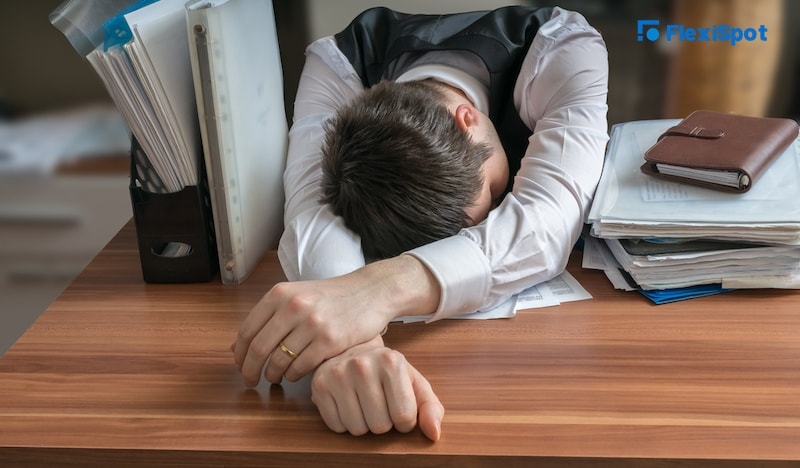Mental health breaks are different for everyone, but when do you take them?
We work more than we should take breaks. We as humans tend to be as ambitious in climbing the corporate ladder and furthering our career, much like the worker ants constantly working hard to please their queen. Working hard is what makes things improve for us. If we work hard, we show the company that we work for that we are ready for more responsibility, and even that raise in pay that we have been hoping for. Not all of us are lucky enough to already have that, so we tend to see that as the light at the end of the tunnel or even just a goal that we very much aspire to achieve.
Continuing to work super hard and getting results are great, but after a while, you tend to take a toll on yourself. We can quickly get burnt out, tired, or just over pushing ourselves too hard to want to continue. It’s how some of us get when we finally are ready to take on that New Year’s resolution to get better in shape but don’t end up keeping at it because we went too hard too fast. It is hard to want to keep at something when the results don’t happen as quickly as you would like. All of this can be straining on anyone no matter how much time has passed or how long you have waited for results. Burnout is a real thing, despite what some people may say. People experience this nowadays due to our attention span being shorter thanks to the wonderful technology we enjoy.

After all the burnout you experience, you kind of want to take a step back to refresh your brain and just relax a little. Burnout can also flare up some mental health issues. It will happen to many of us unfortunately more than we would like. We will try and ignore it at first because we as people tend to be resilient, wanting to feel that sense of completion when our goal or task is accomplished. That feeling of completing something is a lot of the reason why we push ourselves to carry on. Unfortunately, burnout due to work can cause more harm than good. Some emotional signs and symptoms of your mental health due to burnout are:
A sense of failure and self-doubt
Feeling helpless, trapped, or defeated
A detachment that causes you to feel alone in the world or your workplace
Loss of motivation or a need to finish a project
An increasingly cynical and negative outlook on your job, work environment, or co-workers
A decreased satisfaction and sense of accomplishment

Per the Mayo Clinic, “Job burnout is a special type of work-related stress — a state of physical or emotional exhaustion that also involves a sense of reduced accomplishment and loss of personal identity.
"Burnout" isn't a medical diagnosis. Some experts think that other conditions, such as depression, are behind burnout. Researchers point out that individual factors, such as personality traits and family life, influence who experiences job burnout.
Whatever the cause, job burnout can affect your physical and mental health. Consider how to know if you've got job burnout and what you can do about it.”
With all that said it kind of makes you want to take that mental health break even more. If you know you are ready for a mental health break you may be wondering “When is the best time for me to take a mental health break?”. The best answer for this is really that there is no best time. The best time, in a sense, is when you need it. Never be worried about asking your employer for time off for a mental health break. It is one of the many reasons why we are offered paid time off from our employers. Our employers encourage us to take breaks because no one can constantly work without a chance to refresh or relax. We need time off to recharge our brains, bodies, and our mental state in order to be the best we can be at anything we do in our careers or even in our lives.

Take a chance to use that paid time off to enjoy a mental health break and relax. Mental health breaks could be something as simple as taking a day off or even just taking a week off to do something you love and turn your brain off for a bit. Many people do different things when it comes to taking a mental health break. Some people choose to spend the day with a good book, a fun video game, or just bingeing some good movies that bring a smile to their face. There are others who feel more relaxed by being one with nature by going hiking, camping, fishing, or even just taking some time to enjoy the night sky with a telescope and an ambitious goal to see a shooting star.
There is no perfect formula for a good mental health day off. There isn’t a cookie-cutter plan that you can use to plan the perfect day off for your mental health. Putting that pressure on yourself to make things “perfect” is almost counter-productive and the kind of stress you would possibly put on yourself when you are at work. No one wants to feel stress, especially when it comes to taking some time off for yourself. The best thing is to think of what brings you joy. What things make you smile? What environment do you feel the most comfortable in? These and many others are things to consider before you decide to take a day off or days off for your mental health break. You want to use that time to do anything you want and accomplish that feeling of bliss when you are ready to return to work. Remember, you should never be too afraid to take a mental health break, we all deserve one even on our best days.